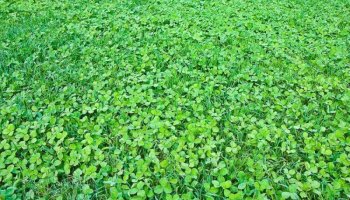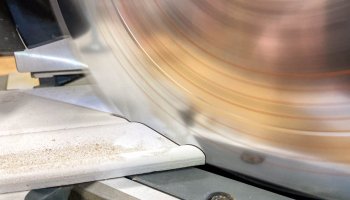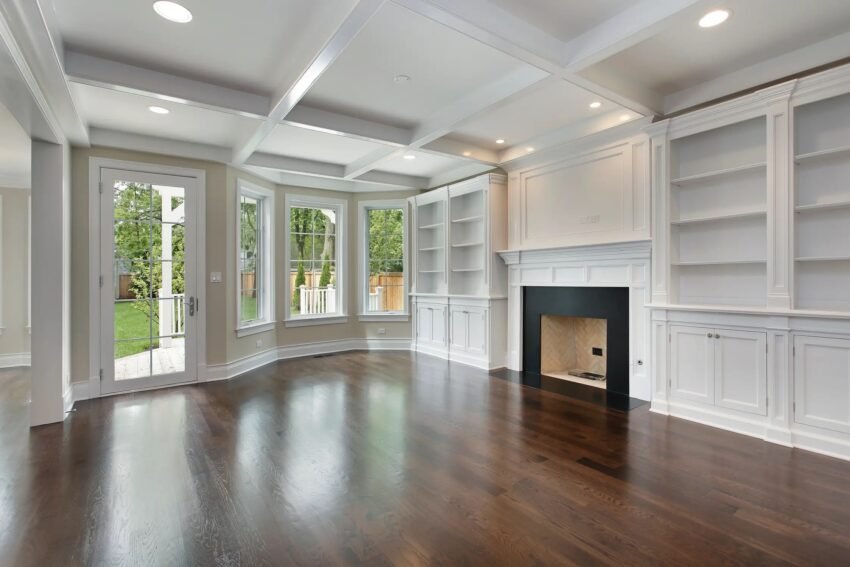
The Timeless Appeal of Hardwood Flooring
Hardwood flooring is a classic choice for flooring. It has a traditional appeal that stands the test of time, and it is one of the only types of flooring that looks better as it ages. The patina of aged wood adds to the natural beauty of your home and has a distinct character that other flooring materials can’t match.
In this guide, we’re going to lay out everything there is to know about hardwood flooring, including cost, installation, and money-saving tips.
Variables and Key Considerations in Cost
Homeowners spend an average of $4,000 for hardwood flooring in their homes, at an average rate of $6 to $24 per square foot. The cost of hardwood flooring varies depending on the following key considerations:
- The size of the area
- The type of wood
- Wood grade and dimensions
- Installation pattern
- Labor costs
- Finishing techniques
How to Calculate Hardwood Flooring Cost
With a few quick measurements and calculations, it’s usually pretty simple to estimate the cost of hardwood flooring. However, if you are installing your flooring with a complex pattern, it can be a little more challenging to account for waste.
Measuring Rooms and Areas
Find the area for each room you’re covering by measuring the length and width and multiplying them together. Then, add all of the rooms to get the total square footage to cover the space you need.
Make sure to add 10% to the total square footage to account for waste. More complex designs like Herringbone or Chevron patterns require 12% to 15% additional flooring.
Here are the average costs of wood flooring types per square foot:
| Type of wood flooring | Cost per square foot |
| Bamboo | $2 to $10 |
| Cherry | $4 to $7 |
| Cypress | $4 to $6 |
| Hickory | $4 to $9 |
| Mahogany | $6 to $8 |
| Maple | $5 to $10 |
| Oak, red | $5 to $9 |
| Oak, white | $6 to $11 |
| Pine | $3 to $6 |
| Teak | $9 to $13 |
| Walnut | $8 to $14 |
Labor Costs
Approximately 25 to 50% of the cost of hardwood floor installations is labor. The cost of labor to install hardwood floors is about $3 to $5 per square foot, depending on your location.
Hardwoods like walnut are more difficult to work with than softwoods like pine, so the installation costs are higher.
Factors that Affect Hardwood Flooring Cost
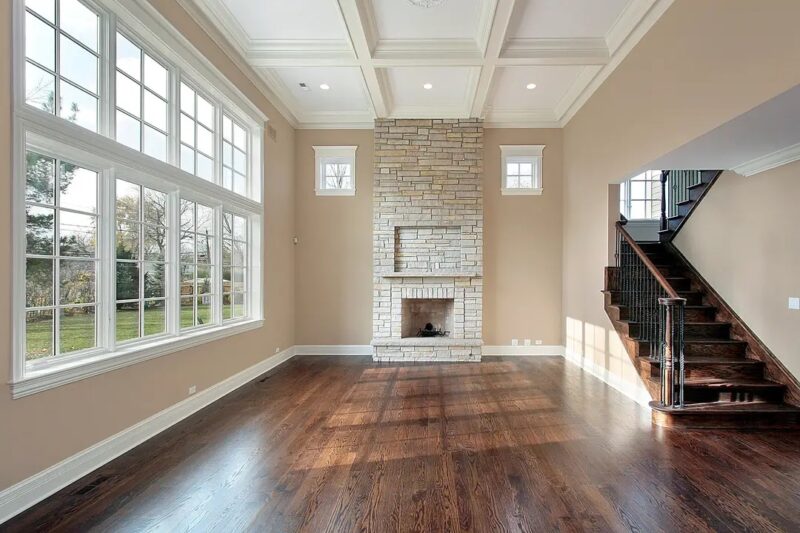
Type and Grade of Wood
The type and grade of wood flooring are two of the most significant price determiners. Low-grade hardwood flooring costs about $6 to $20 per square foot, and high-grade costs about $8 to $25 per square foot.
Finish and Treatment Options
Prefinished hardwood takes less time to install than hardwood flooring that has to be finished onsite after installation.
In parts of your home that are more prone to moisture, you will need a finish that protects the wood. These areas include kitchens, bathrooms, and laundry rooms, among other places.
Similarly, there are various treatment options for wood floors that may be exposed to more UV rays. Choosing the right treatment option will ensure that your hardwood floor lasts longer, but installation may cost more.
Geographic Location
Different geographic locations have better availability of certain types of wood flooring, and you may not have to pay as much in some regions. If you live in a rural area, you may have to special order hardwood flooring, which can add to the cost.
Complexity of the Installation Area
The complexity of the installation area affects the cost of hardwood floors. Installation takes longer if there are many curved lines and corners or intricate patterns.
Generally, hardwood flooring costs about $3 to $7 per square foot to install. Genuine parquet floors are the most expensive and can cost up to $20 per square foot just in labor costs.
Additional Costs and Considerations

Consider the following factors when calculating the cost of installing hardwood floors:
- Underlayment requirements– Depending on your subfloor and the type of hardwood flooring you choose, you may need various underlayment options, including foam, felt, rubber, or cork.
- Removal of old flooring– The cost to remove flooring is about $2 to $4 per square foot, depending on the type and disposal methods.
- Repair or preparation of subfloor– Subfloor repairs can cost between $2 and $10 per square foot.
- Customization, borders, and patterns– There are many ways to customize your hardwood floor with different borders and patterns, but customizations take longer to install so they cost more.
Types of Hardwood Flooring

Solid Hardwood
The average cost to install hardwood floors is $8 to $40 per square foot. It costs $5 to $30 for the solid hardwood flooring materials. The labor costs for this type of hardwood flooring typically cost $3 to $10 per square foot.
Solid hardwood is the traditional type of hardwood flooring, but it’s more expensive than engineered hardwood, with a similar appearance. You can save money by buying less expensive types of wood and lower-grade materials.
Engineered Hardwood
The average cost of engineered hardwood flooring is $8 to $25 per square foot. The materials cost $5 – $15 per square foot, and the installation cost is an additional $3 – $10 per square foot.
Engineered wood looks like solid hardwood, but it’s made with a plywood core and a thin hardwood veneer on top.
Bamboo and Exotic Woods
There is a wide range of prices when it comes to hardwood flooring. More durable woods are in greater demand and typically cost more. Some wood species, such as exotic hardwoods, are rare and cost significantly more.
Bamboo is much more durable than many other types of wood, rating slightly higher on the hardness scale than maple and oak. Since it’s a sustainable material, it’s much more environmentally friendly than exotic hardwoods.
Prefinished vs. Unfinished Hardwood
Prefinished wood flooring costs slightly more than unfinished wood flooring, but when you factor in the finish and the labor, they are often the less expensive option.
There are pros and cons of prefinished hardwood flooring. It’s quick and easy to install, and it’s ready to go as soon as you install it. On the downside, it can be tougher to match the finish if you ever need to replace planks, and it’s often more difficult to repair.
Do You Need to Replace Your Hardwood Flooring?

How long does hardwood flooring last? Since hardwood floor replacement is costly, you’ll want to avoid it if possible. Learn how to determine whether your floors need to be replaced or refinished.
Signs of Damage and Wear
The most common signs of damage and wear come from foot traffic. When you drag in dirt from outside, it acts like sandpaper on your wood floors and wears them down over time.
Other common signs of damage and wear include water damage, scratches, nails peaking through the wood, and creaking floorboards. Pet scratches on your hardwood floors indicate it’s time for new floors.
Evaluating Surface vs. Structural Damage
Most wear and tear damage on hardwood floors is surface damage, but if you’ve had significant amounts of moisture on your floors caused by leaky pipes or extreme weather events, cupping, warping, and splintering can spell disaster.
With surface damage, sanding and recoating is often the best choice, but you must replace your floors if you have structural damage.
Longevity and Life Expectancy of Hardwood
The life expectancy of hardwood floors is 100 years, and even engineered hardwood flooring can last 50 years or more. Simply sanding and refinishing your hardwood floors can give them several more years of life.
Benefits of Choosing Hardwood Flooring

Hardwood floors are one of the most expensive types of flooring, but they are beautiful and durable. Explore the benefits of hardwood flooring to determine if they are the right choice for your home.
Aesthetic Appeal and Timeless Beauty
As wood ages, it develops a beautiful patina. Hardwood floors radiate warmth and evoke quality and class, and you can finish them to match any decor.
Not only do you have a wide range of choices when it comes to color, wood species, patterns, and size of planks, but you can choose the right wood undertone for your home’s decor to make your home feel cozy and inviting or calm and peaceful.
Durability and Longevity
There are several types of flooring that are long-lasting and durable, and hardwood flooring is at the top of that list. Because they can be refinished, they will look better longer than other types of durable floors.
Increased Home Value
Hardwood flooring is popular, and if you install it in your home, it will increase your property’s value. There is also a low cost to maintaining hardwood floors, and with the low replacement costs, you’ll save money over time.
Versatility in Design and Refinishing Options
Wood is one of the most versatile building materials there is. With different finishes, wood species, and patterns, you can choose from an endless array of design options to suit your personal tastes.
DIY vs. Professional Hardwood Flooring Installation
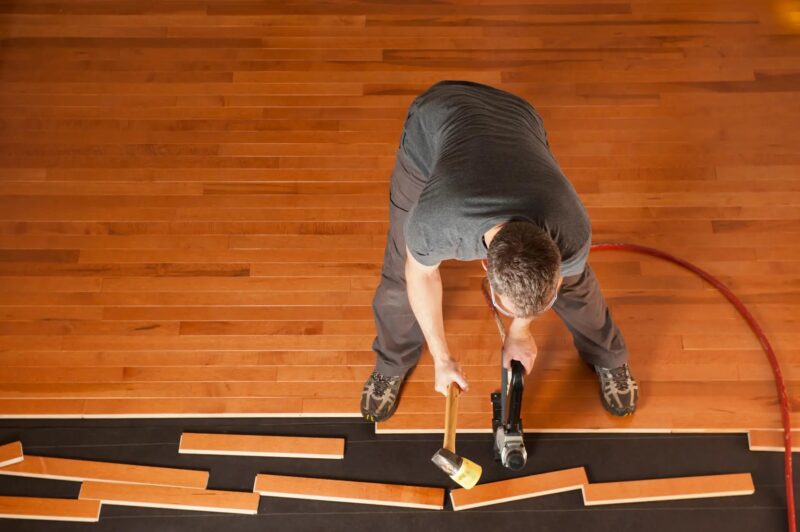
If you’re considering DIY installation of hardwood floors, consider the savings and challenges you’ll run into versus the quality of craftsmanship that you’ll get with professional installation.
The DIY Route: Savings and Challenges
Home improvement projects rate differently on the DIY-friendliness scale, and hardwood flooring is one project that can be harder, especially for beginners. Keep in mind that harder woods are more difficult to work with.
If you’re an experienced DIYer, you should be able to successfully install floating flooring and click-and-lock wood tiles, but most DIYers should avoid hardwood flooring installation.
Hiring Professionals: Quality and Guarantee
Hiring a professional allows you to take full advantage of material warranties and work guarantees.
Professional installers have the experience to handle wood flooring with expertise, taking into account changes in humidity and temperatures to avoid bowing and warped floor installations.
Weighing the Investment in Hardwood Flooring
Even though the upfront costs of hardwood flooring are greater than many other types of flooring, it’s hard to resist the beauty, durability, and value of classic hardwood floors.
Since they can last for over a century when properly installed and taken care of, they are much more cost-effective than cheaper materials. If you’re looking for class and timeless appeal, hardwood floors will add to the value of your home for many years.
Frequently Asked Questions About Hardwood Flooring Installation
How long does hardwood flooring typically last?
Hardwood flooring can last 50 to 100 years before it needs to be replaced. Some finishes can be redone every 2 to 3 years, but after about 7 to 10 years, sanding and recoating is often recommended. You can sand and recoat most hardwood floors 4 to 6 times during their lifespan.
What’s the difference between solid and engineered hardwood?
The difference between solid and engineered hardwood flooring is similar to the difference between dimensional lumber and plywood. Engineered wood comprises layers of wood similar to plywood, with a thin layer of hardwood on top.
How do I care for and maintain my hardwood floors?
Hardwood floors should be swept daily, vacuumed weekly, and mopped with a dry mop every two weeks. Avoid using excess water on hardwood floors, and clean up spills immediately.
Can hardwood flooring be installed over existing floors?
You can install hardwood flooring over existing floors provided certain conditions are met. As long as the subfloor is level and in good condition, there shouldn’t be any issues installing a new hardwood floor over an existing one.
How resistant is hardwood to moisture and spills?
Moisture and spills are the biggest enemies of hardwood floors and must be cleaned up immediately, especially if the finish on your floor is worn.




